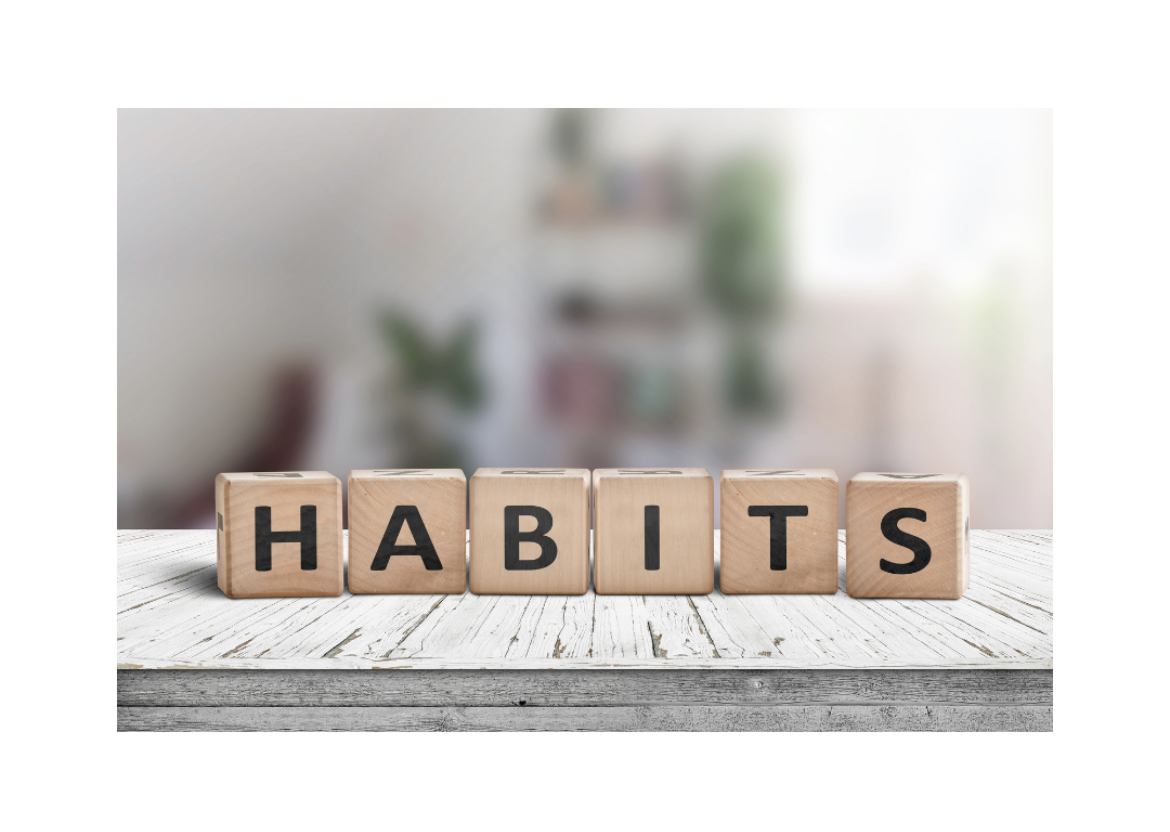Habits
By James Pinola, MS, CSCS, CEP
Habit: noun
A settled or regular tendency or practice, especially one that is hard to give up.
You may not realize it, but your habits play a substantial role in your life. Your fitness, your finances, your relationships and just about every domain of your life is influenced by your habits. The morning jogger, the early retiree and the marriage that lasts 50 years all have something in common. Daily attention and effort. Now think about your own life for a moment and reflect on the habits that are ingrained in your daily routine. Your habits and routines will have a greater influence on your life over the long term than one off examples of passion, commitment, etc. For example, a relationship thrives if there is mutual respect, compassion and commitment sprinkled in daily, whereas relationships that crumble tend to rely on singular acts of kindness (think gifts on Valentine's Day). If immediate examples are hard to come by, brushing your teeth, your commute to work, and that morning cup of coffee are some simple everyday examples that can be overlooked because they are woven into your life.
To take this a step further, what positive habits have you laced into your life? While the word “positive” in this case will ultimately be defined by each person individually, perhaps you can find common ground with this short list: saving money for retirement, walking the dog, going to the gym, eating vegetables, visiting your parents. On the other hand, you’re probably glaringly aware of your bad habits, (don’t worry, you’re in good company). So, what attempts, if any, have you made to hedge the negative consequences of your bad habits? If you’re worried that this is going to be yet another lecture on willpower or recommitting yourself, fear not. The problem may not even be your willpower, the problem might actually be the force of inertia. While we won’t be diving into a physics lecture, just know that inertia is an incredibly hard force to overcome. Rather than fighting it, try recruiting inertia to work for you. Since removing bad habits can be tough, try replacing a habit instead.
Here’s an example: a few years ago I wanted to cut back on drinking (a negative habit I wanted to replace). So, I no longer keep alcohol in the house, drinks are saved for special occasions. The problem, I soon encountered, was that I missed having a cold can in my hand as I sat on the couch to relax after work. I ultimately replaced the beer cans with seltzer water cans. The habit of holding a cold can and feeling the carbonation on my lips allowed me to make an easy swap that satisfied my craving. If the pressure of sticking to a new year’s resolution has you stressed, leave those big overhauls in the past. Instead, lower the hurdle, so it’s easier to clear, and focus on small incremental changes. Glacial changes rarely last long term, so if you have big goals, start small.
Lastly, habits don’t have to exclusively be about self-restraint. Adding positive routines can be a powerful force too. Years ago, I wanted to become someone who reads a lot. Reading is the medium that helps me absorb information the best and most of the people I admire tend to be well read. However, after just a few minutes of sitting and reading, I would find myself fidgeting in my chair, unable to sit still; my mind would drift off as a consequence. If you suffer from any form of attention deficit, you know how frustrating it can be to read the same page over & over and not absorb anything. So, I started reading on the treadmill. I walked at a slow pace and found myself better able to focus and retain what I read. Starting with just 20 minutes a few times a week, I have since worked up to an hour daily. This hour has become one of my favorite parts of my daily routine and it is empowering to quickly move through material and learn from smart people. If you like this idea, but reading doesn’t excite you, perhaps you could listen to music, a good podcast, or even watch a tv show while you walk. You don’t have to limit yourself to the treadmill, or even the domain of exercise, rather, try pairing something you already enjoy with something you want to start doing. This pairing can make your new habit pleasurable, and that’s a recipe for success.
My challenge to you is to come up with your own examples. Is there one habit that is no longer serving you? If so, how can you replace it? Also, what one positive habit could you add to your daily routine?
If you’re interested in learning more about habits, here are a few books you could check out:
1.) Good Habits, Bad Habits: The Science of Making Positive Changes That Stick
2.) The Power of Habit: Why We Do What We Do in Life and Business
3.) Atomic Habits: An Easy & Proven Way to Build Good Habits & Break Bad Ones




